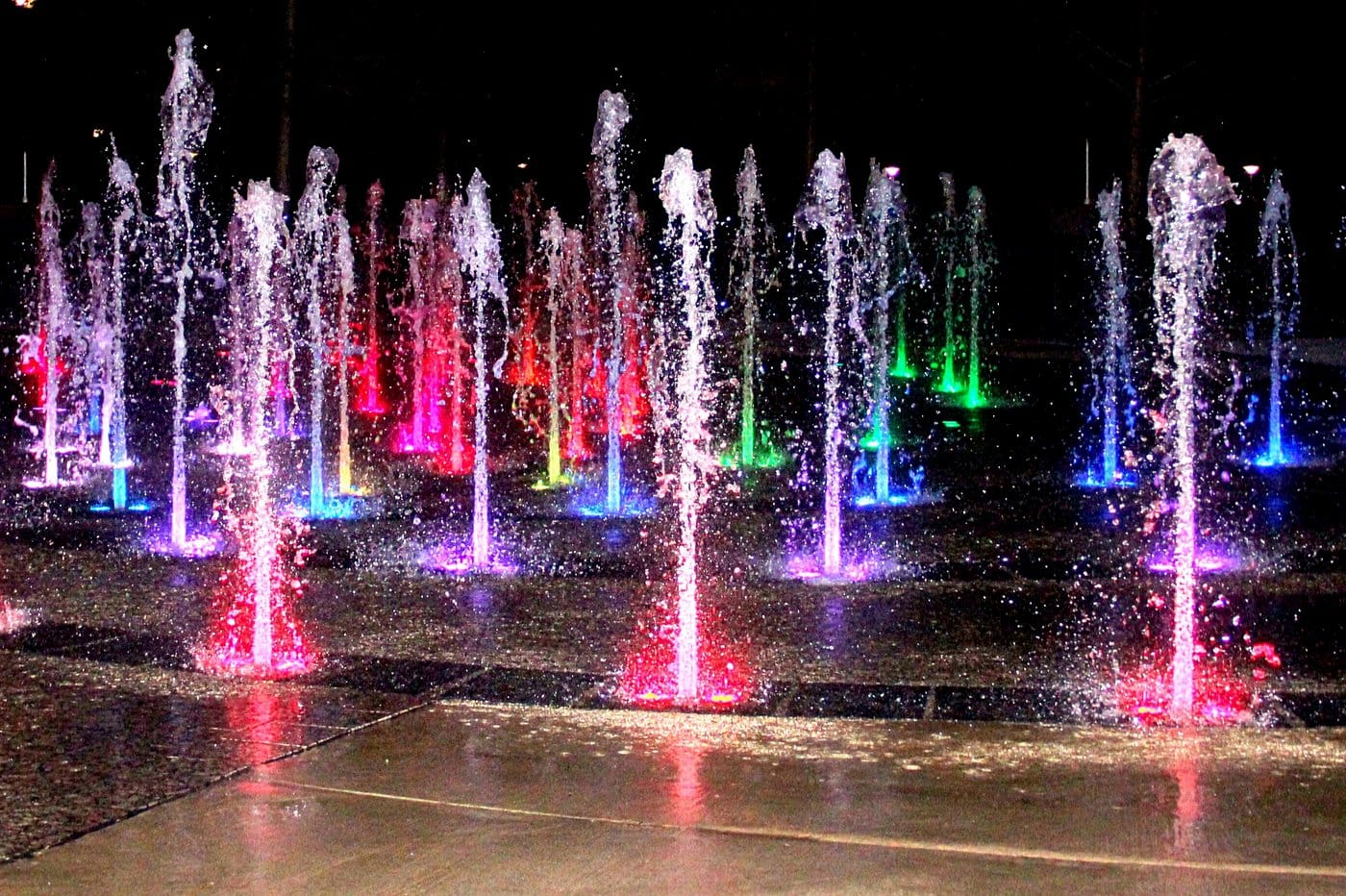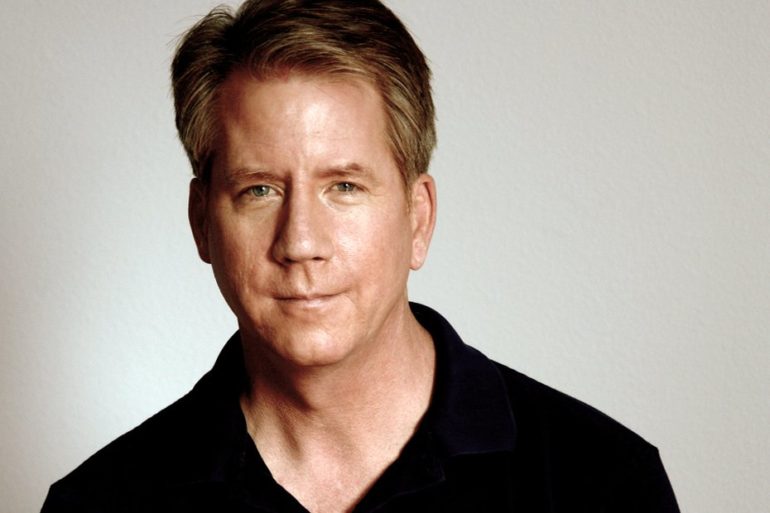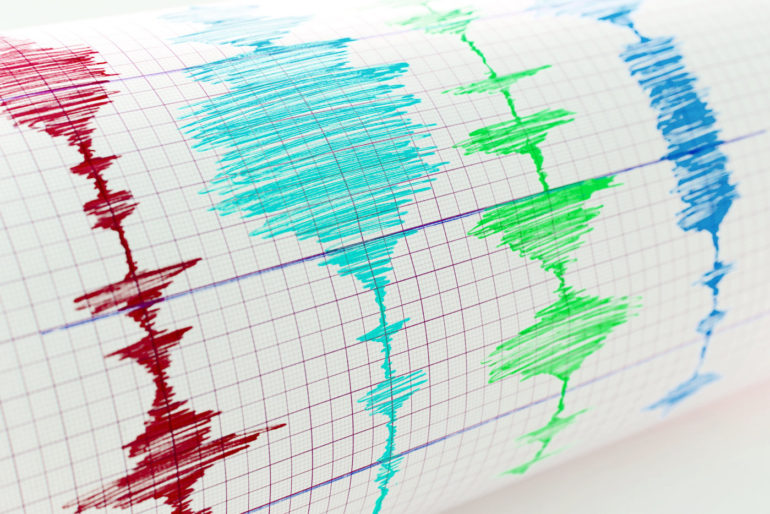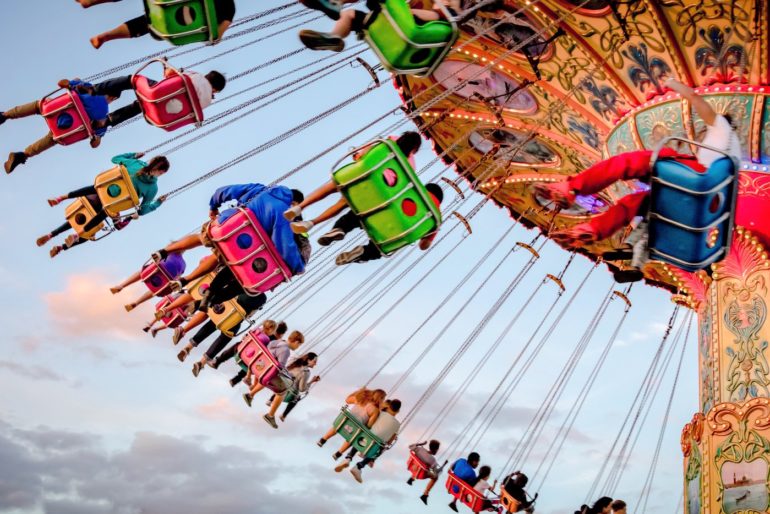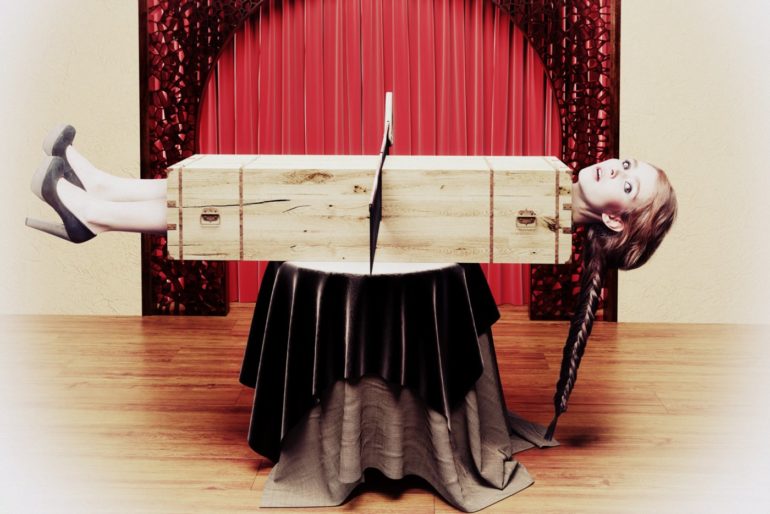Are splash pads safe?
It seems like splash pads are becoming super-popular — so are they really as safe as they seem?
Splash — ah aah
Splash pads — also called water play areas, interactive fountains, wet decks, spray pads, or spray parks) are essentially a series of water fountains mounted underground that shoot jets of water upwards.
The jets can spray high and low and vary their splash patterns, and some systems even come with lights that make it look like the water is changing color. (As you can see above, the show of colored water is especially dramatic at night.)
You might be hearing a lot of buzz about these water features because they’re becoming more and more popular all the time, with installations at parks, community pools, and even residences.
The modern sprinklers
There are several big benefits to splash pads — here’s a look!
Pro: Fun
Splash pads can be super fun for kids, and parents will appreciate that their littles can stay amused for hours all without going outside of your visual range. Many parks also offer other water features — like whimsical showers or soakers shaped like flowers and animals.
Pro: Eco-friendly
Splash pads are really today’s equivalent of running through the sprinklers, but are more eco-friendly — and won’t waterlog your grass. You’re not wasting water, because splash pads recycle it all. (Read more about the water recycling process below.)
After it sprays up and falls back down, the water filters through the splash deck/rain deck (the ground the jets are built into) and returns to its sealed underground tank. By storing it in a tank — which typically hold about 150 gallons — evaporation is also minimized.
Pro: Minimized risk of drowning
When most people ask if splash pads are safe, they’re thinking about drowning. This water feature’s simplicity — and safety — is what makes splash pads so popular.
Since there’s no standing water (aka “zero depth”) the drowning risk is negligible — so there’s typically no need for a lifeguard, pool fences or door alarms. And after the water is turned off, it’s just a flat play area.
Pro: Backyard-friendly
Because the tops of the splash jets are level with the raindeck — usually at or slightly above ground level — they’re not a tripping hazard (unlike sprinkler heads). And without any parts to get in the way, when the splash pad’s not spraying water, this low-profile area can double as a deck or patio.
Pro: Affordability
These water play areas are a lot more affordable than putting in a pool. In addition to avoiding the cost of a pool installation, splash pads are a lot lower maintenance.
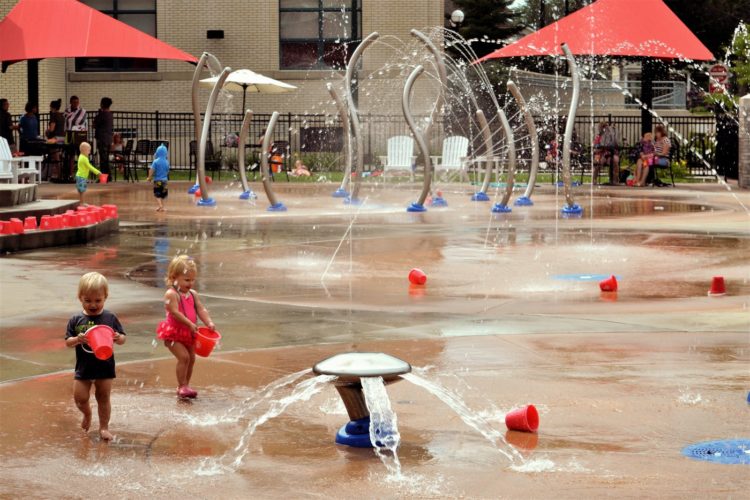
Con: Cleanliness
Low maintenance, though, definitely doesn’t mean there’s no maintenance required.
If run and maintained properly, the wet deck’s water is filtered and chemically cleaned before spraying out, and is supposed to be at swimming pool water quality standards.
Proper procedures, though, are key — because if you just spray the water back out without cleaning it, that fun could turn into misery pretty quickly.
“People may not realize that although there is no standing water in these attractions, the spray water will rinse any contaminants (for example, diarrhea, vomit, and dirt) down into the water holding area and be sprayed again,” notes the CDC. “In other words, the water is recycled through the system. As a result, it is possible for the water to become contaminated and make people sick.”
For example, In July 2014, the Tennessee Department of Health linked an outbreak of Salmonella to a splash pad in west Tennessee. Following this outbreak, the team evaluated the water quality at 29 of the 59 splash pads identified across the state, and found that more than 20% of the water samples tested did not have the recommended level of chlorine — and nearly one in five water samples tested had germs that could make people sick, including Escherichia coli, Giardia, norovirus, and Salmonella.
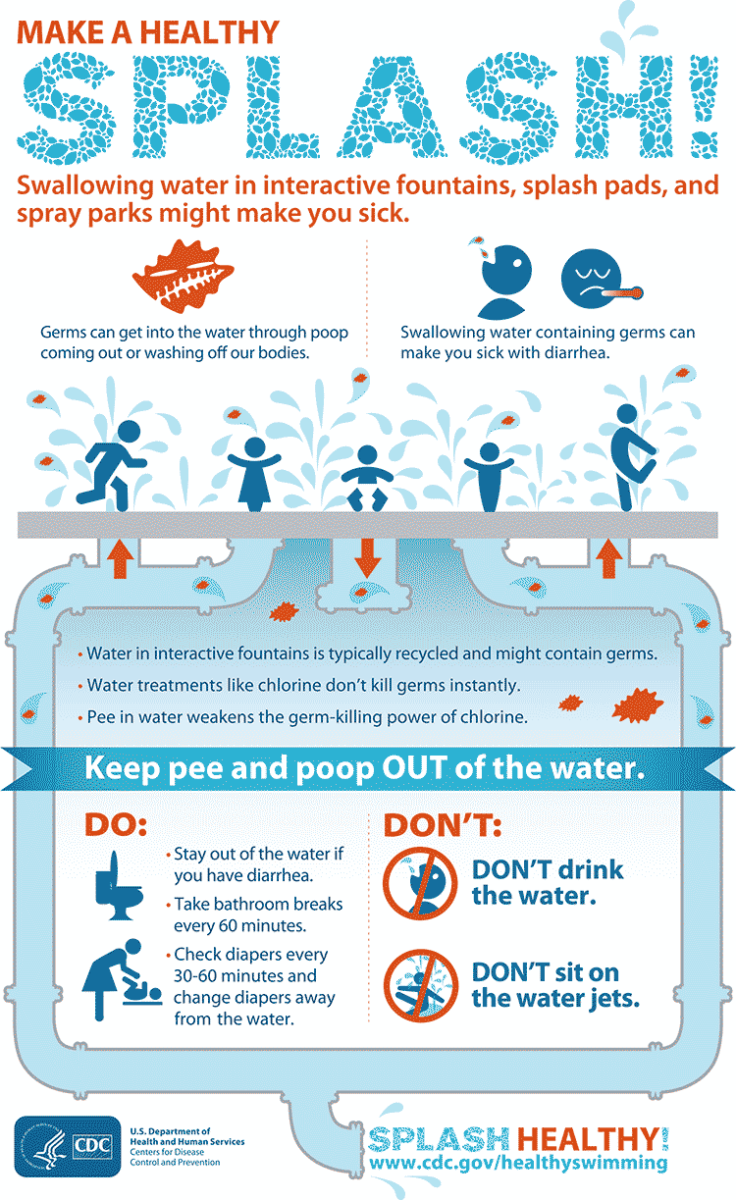
Go on and get wet
Now that you know some of the pros and cons, if you want to go out there and get wet, visit your town or city’s website, or click here to see if there are any public splashpads near you. (You should definitely consider asking how the water is maintained.)
Want to keep it closer to home — maybe so you can make sure the water is cleaned to your standards? If you’re interested in installing a splash pad of your own, there are dozens of companies who can install the pads and/or the bonus water features to turn even the most basic backyard into a summer playground.

